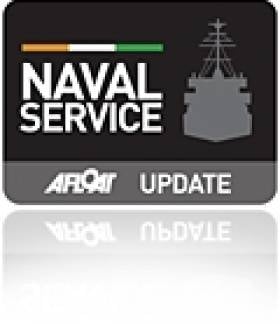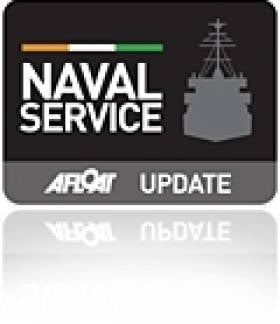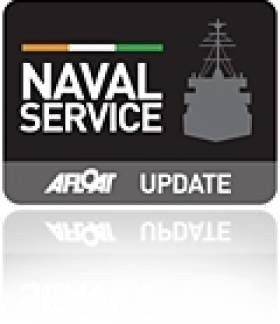Displaying items by tag: CPV
Navy’s Night-Time Detention of Belgium Fishing Vessel
In March another foreign-flagged fishing vessel, the UK registered Lynn Marie was detained on the same grounds for an alleged breach of fishing regulations by the L.E. Orla (P41). The Lynn Marie was escorted by the Peacock –class coastal patrol vessel (CPV) into Dun Laoghaire Harbour and similarly the custody of the vessel was transferred to the Gardai.
So far this year the Naval Service has carried out 852 boarding's and eight detentions of vessels off the Irish coast. In 2010 the navy conducted 1666 boarding's which resulted in warnings to 70 vessels and eight detentions.
The operation was spearheaded by the ARW with the support of a Naval Service coastal patrol vessel (CPV) and also Air Corps helicopters. High-speed tactical assault craft with ARW teams on board conducted manoeuvres while air-borne teams fast-roped from helicopters onto the deck of the Stena Adventurer. To see photos of the ARW team in action click HERE.
The exercise was designed to enhance the capacity of the Defence Forces to provide the State with a highly specialised maritime armed intervention capability.
Last month the Naval Service conducted close quarter manoeuvres in 'Operation Quixote' off the south-west coast. The exercise involved the entire naval fleet except for the flagship LE Eithne, which performed in gunnery practice, simulated air attacks from the Air Corps and armed naval boarding parties.
UK Registered Trawler Detained off Bray Head
of the Gardai. The L.E. Orla which berthed alongside the harbour's Carlisle Pier, is designated as a coastal patrol vessel (CPV) along with sistership L.E. Ciara (P42).
This is the second detention of a vessel this year. According to the Naval Service in 2010 there were 1666 boardings carried out which resulted in warnings to 70 vessels and eight detentions.


























































